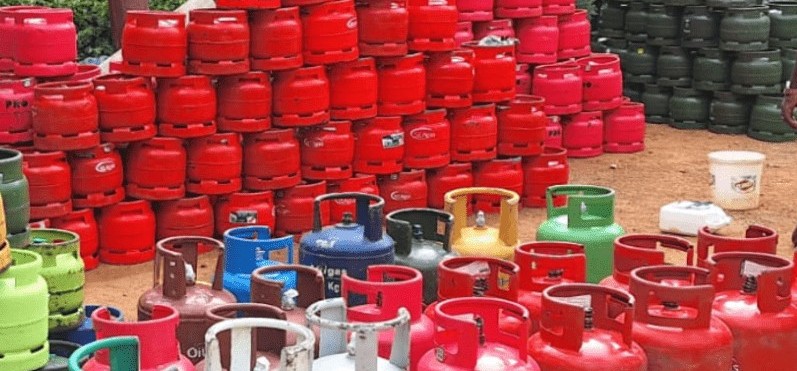Over 150,000 cylinders unused as Government gas initiative fails

The audit reveals that out of 161,448 six-kilogramme cylinders in storage, only 5,444 have been filled with gas.
The government's subsidised cooking gas programme meant for low-income households has ground to a halt, with thousands of gas cylinders lying idle due to funding challenges, a new audit report shows.
Launched in 2016 to encourage the use of clean energy in poor households, the Mwananchi Gas project has failed to take off as intended, with the Office of the Auditor General now raising serious concerns over its viability.
The audit reveals that out of 161,448 six-kilogramme cylinders in storage, only 5,444 have been filled with gas.
The initiative, which began under the State Department for Petroleum and was later handed over to the National Oil Corporation of Kenya (Nock) through a letter dated September 16, 2021, was designed to provide subsidised LPG cylinders, grills and burners to homes across the country.
The plan was for Nock to use proceeds from the initial distribution to sustain refilling and distribution.
However, the Auditor General says the rollout never began as planned in the 2020/2021 financial year due to Nock’s lack of working capital.
“Implementation of the project was uncertain due to what management attributed to a lack of sufficient working capital,” Auditor General Nancy Gathungu says in the report dated December 24, 2024 and released to the public in July.
As of June 30, 2024, Nock was still holding over 161,000 six-kilogramme LPG cylinders, with only a small fraction filled with gas. Alongside these were huge stocks of other unused components, including grills, burners, horse pipes and double burner stoves.
Despite the large volumes in storage, only 11,675 cylinders, 12,869 burners and 87,147 grills, worth Sh20.5 million, had been recorded in Nock’s books. The Corporation said it did not include the rest of the items in its financial statements because the State Department had not formally transferred ownership.
“The value for money on the expenditure incurred on the project could not be confirmed,” the Auditor General said, citing delays, uncertainty and the lack of formal asset transfer.
In addition, the audit found that 88,248 cylinders stored at Nock’s Nairobi National Terminal were defective. These units, worth Sh155.8 million, remained unused, yet continued to lose value.
“Management did not provide measures taken regarding the defective cylinders, which were not in use and continue to lose value,” the audit reads.
“In the circumstances, the value incurred on the acquisition of the LPG cylinders valued at Sh155,845,107 could not be ascertained.”
The report paints a grim picture of a project that has faced repeated delays, poor management and now a near-total standstill. The original plan to generate revenue through early sales to sustain the project has failed, and the government appears to have taken no visible steps to revive or repurpose the initiative.
The Auditor General concluded that millions of public funds may have been wasted, with no explanation from the authorities involved and no clear plan for the future of the programme.
